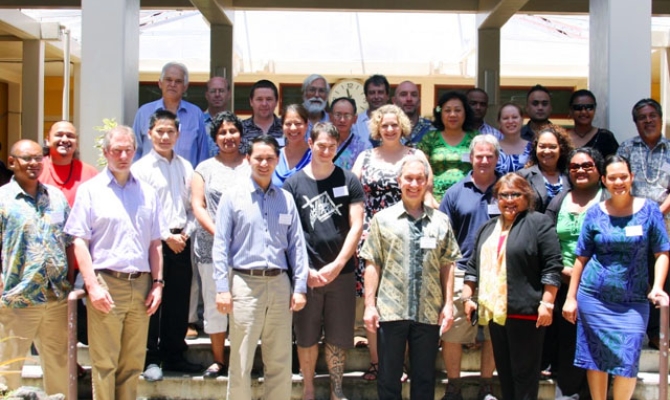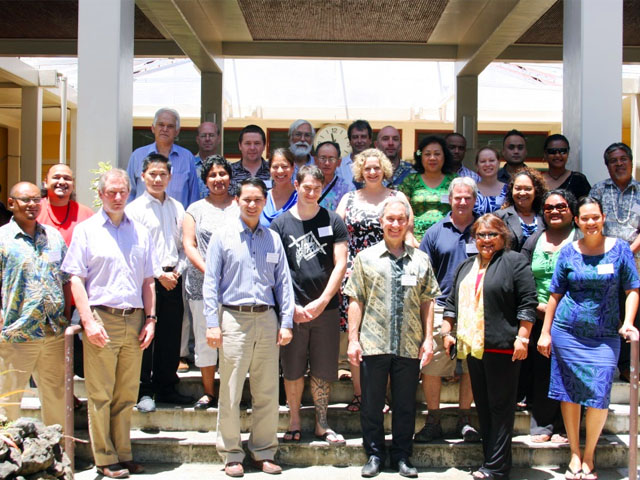
Climate Change Resilience
Our oceans are arguably the most valuable resource of the Pacific Islands and in May this year we moved one step closer to being better able to fully understand and manage them.
The Data Buoy Cooperation Panel (DBCP), in cooperation with SPREP, hosted their first capacity building workshop in the region, focusing on ocean observing and data applications (PI-1).

The DBCP is an international program coordinating the use of autonomous data buoys to observe atmospheric and oceanographic conditions, over ocean areas where few other measurements are taken and is supported by the World Meteorology Organization and the International Oceanographic Commission. The DBCP makes up the data buoy component of the Joint WMO-IOC Technical Commission for Oceanography and Marine Meteorology (JCOMM).
The PI-1 workshop was attended by 35 participants, including representatives from American Samoa, Fiji, FSM, New Caledonia, Palau, RMI and Samoa. Over the course of the four day workshop a range of topics addressing issues such as ocean acidification, coastal inundation and monitoring needs for the region were discussed. Priority areas identified include the need for better coastal inundation forecasting, support for marine meteorology, training and capacity building, and the need for international and local support for ocean observing and marine forecasting.
For further information, please contact Tommy Moore ([email protected]) and visit the PI-1 webpage.
The Data Buoy Cooperation Panel (DBCP), in cooperation with SPREP, hosted their first capacity building workshop in the region, focusing on ocean observing and data applications (PI-1).

The DBCP is an international program coordinating the use of autonomous data buoys to observe atmospheric and oceanographic conditions, over ocean areas where few other measurements are taken and is supported by the World Meteorology Organization and the International Oceanographic Commission. The DBCP makes up the data buoy component of the Joint WMO-IOC Technical Commission for Oceanography and Marine Meteorology (JCOMM).
The PI-1 workshop was attended by 35 participants, including representatives from American Samoa, Fiji, FSM, New Caledonia, Palau, RMI and Samoa. Over the course of the four day workshop a range of topics addressing issues such as ocean acidification, coastal inundation and monitoring needs for the region were discussed. Priority areas identified include the need for better coastal inundation forecasting, support for marine meteorology, training and capacity building, and the need for international and local support for ocean observing and marine forecasting.
For further information, please contact Tommy Moore ([email protected]) and visit the PI-1 webpage.